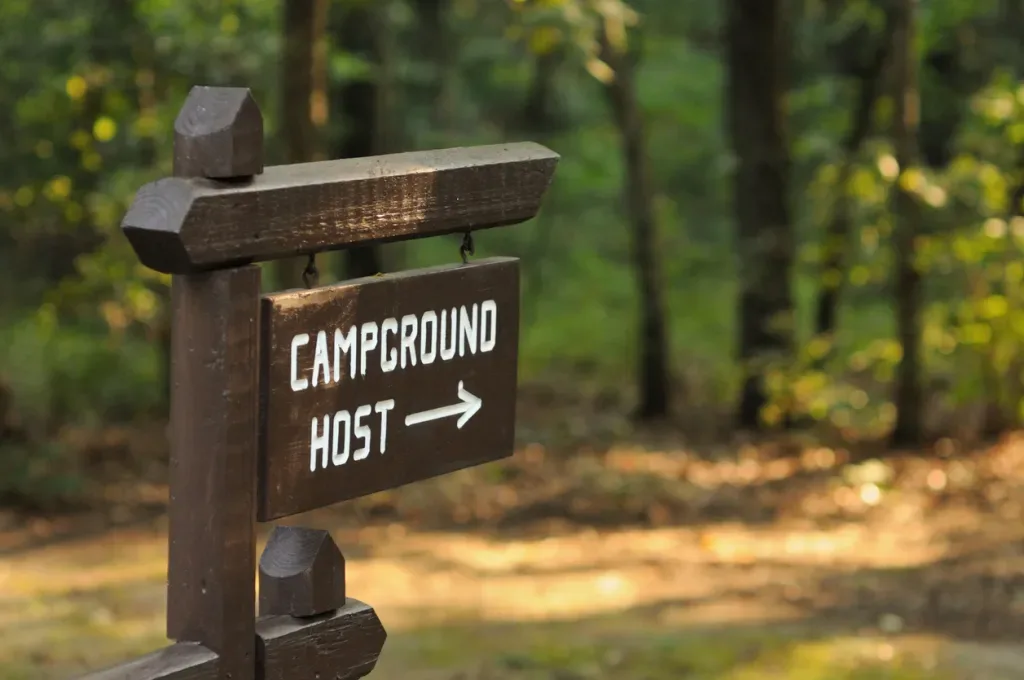Many adventurers are searching for jobs that allow them to travel. Luckily, with more employers adopting remote work, they’re becoming easier to find.
Despite what it may seem like on social media, most full-time RVers have careers. While they aren’t your classic nine-to-five workers, they also have bills to pay.
Today, we share some of the most common remote opportunities that keep us on the road.
Let’s log on!

What is Remote Work?
Remote work is an employment agreement allowing staff to satisfy their duties outside a formal office. Employees set up at home, coffee shops, and even RVs. Employers might have geographic rules, but the prospects are endless in many situations.
It may seem like a relatively modern concept, but it’s been around since the 1970s. Technology advances over the last 50 years have made it easier to embrace.
Before high-speed internet, these positions relied heavily on contact through phone networks. However, digital tools like email, video conferencing, and project management software simplify processes today to make communication simple.
These formats can be a win-win for everyone involved. The increased flexibility allows for a better life balance. Team members no longer have the stress of battling traffic when commuting. And it can boost morale, resulting in increased production and a better atmosphere.
It can also unlock the possibilities for people to travel and see the country. And campers can serve as a home and office on wheels.
Why rely on a picture of mountains for your video conference background when you can have the real thing?
How Do Full-Time RVers Find Remote Work?
Full-time RVers find remote work through various resources. Escapees, FlexJobs, and Indeed are helpful tools. You’ll discover careers online that may or may not require previous experience. However, pools of applicants can be much larger since they can be from anywhere.
In addition, networking is one of the best ways to discover new opportunities. The RV community can be invaluable in helping to connect individuals seeking employment.
Online groups are another great resource. You could be the first to know about an open position.
Unfortunately, scammers have locked in on individuals looking for travel jobs. It’s essential to be very cautious regarding your personal information. If not, you could end up falling for a scam and potentially having your identity stolen.
Also, a reputable employer won’t ask you to cover equipment costs or to send them money for your home office.
We’ve Busted 5 Remote Work Myths That Could Be Costing You.
Are All Travel Jobs Done On a Computer?
Many travel jobs revolve around computers and technology, but that’s not always true. Many positions don’t require sitting behind a desk or at a keyboard.
For example, many roles in the service industry don’t require a computer. Whether you’re waiting tables, mixing drinks, or making coffee, these are necessary roles. Many of them are available in popular vacation destinations. You can live and earn in spots where people come to relax.
Tourist areas typically have tour guide companies to show visitors around. They can be great for those who love interacting with people but hate computers or technology. You can get paid to explore areas and share your wisdom and experiences with others.
Thankfully, you don’t have to be tech-savvy to land remote work. Does it help? Absolutely. However, you can land a dream gig without typing fast or being a computer whiz.
We wondered: Can You Be a Successful Professional While Living in an RV?
Popular Jobs for Full-Time RV Travelers
Full-time RVers often find jobs that allow them to travel and experience incredible locations. If you’re hunting for remote work, these are some to consider.
Workamping
Workamping is what you get when you combine working and camping together. These positions are perfect for RVers looking for a place to park their home on wheels. Campgrounds offer them for hosts, maintenance and groundskeeping crews, and office management.
We love these positions because they’re typically temporary and flexible. Owners and managers understand that nomads usually only stay put temporarily. The length of gigs can vary, but they generally last at least a month or more.

Some only provide a free campsite, but others offer more. Those with higher expectations or more hours usually also provide monetary compensation.
It’s important to know your duties and payment before agreeing to workamping at a location. You should also ask for a contract or something in writing to be on the same page as your employer.
Freelancer
Another line of remote work for RVers is freelancing. These gigs are easier to acquire if you have a particular set of skills or services you can supply to others. It could be writing, graphic design, web development, digital marketing, or even serving as a virtual assistant.
Roles like these provide freedom and flexibility with scheduling. You can earn and play when you want as long as you continually deliver quality results to your clients. However, just be careful not to play more than you should, or your bank account will take a hit.
Seasonal Jobs
Tourism, agriculture, and outdoor recreation are seasonal industries that require a large staff, just not all year. These can be great for full-time RVers who want to enjoy nice weather or see new places. You can meet some incredible people and experience new cultures.
Some popular seasonal jobs include fruit picking, farm labor, outdoor recreation instructors, and even tour guides. They’re often physically demanding but usually worth it. If you plan ahead, you can move from one assignment to the next at the end of each season.

Customer Service Representative
Massive call centers are almost a thing of the past with the recent increase in remote work. Today, staff can operate from just about anywhere, including their RVs. They may not pay well, but they can provide the freedom.
These gigs will often have requirements for equipment and internet access. As a result, they require more planning to ensure you can meet these conditions. You’ll have to camp in spots where you’ve got cell service or hook up with Starlink for your travel job.
One major drawback is that dealing with unhappy customers can be challenging and stressful. However, if you’ve got the right mindset, the pros outweigh the cons.
Deep Dive: Remote Work Revolution – Succeeding from Anywhere
Travel Jobs Make Full-Time RVing Possible For Some!
Remote work and travel jobs can be a great way to fund full-time RVing adventures. However, the increased demand for these positions can make them hard to acquire. Don’t let a denial or two stop you from living your dream. Keep searching and applying until you land a career that allows you to explore and earn money wherever you roam.
Discover the Best Free Camping Across the USA
To be honest with you, we hate paying for camping. There are so many free campsites in America (with complete privacy).
You should give it a try!
As a matter of fact, these free campsites are yours. Every time you pay federal taxes, you’re contributing to these lands.
Become a FREE CAMPING INSIDER and join the 100,000 campers who love to score the best site!
We’ll send you the 50 Best Free Campsites in the USA (one per state). Access the list by submitting your email below: